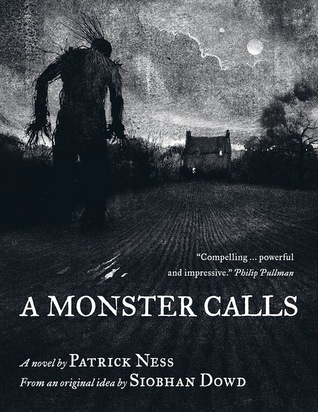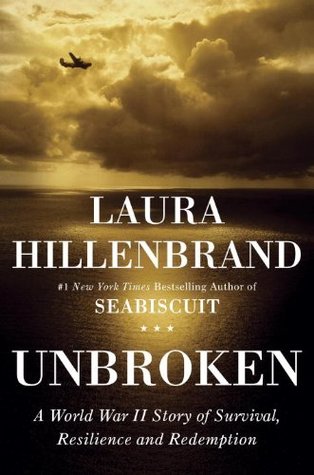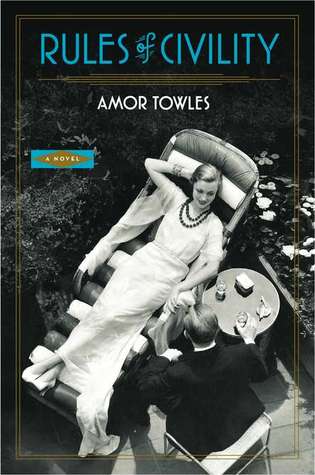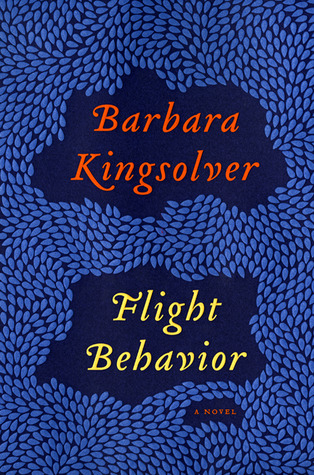A major reading slump this autumn has made a dent in reaching my reading goals, but I'm gaining speed and refocusing now—albeit with slightly different priorities (but that discussion will have to wait for another post. I'll be talking about goals and all that stuff soon.) One thing that is
always a priority with me is the list and the stats. I love stats.
How many books read in 2012?
95 (30 less than 2011! Largely due to reading slumps and no novellas. My goal is always to break 100, so I still came pretty close.)
Genres?
NONFICTION -
14 (15% of total)
[18/14% in 2011]
FICTION -
81 (85% of total)
[107/86% 2011]
- CLASSICS - 17 (21% of fiction) [37/30% in 2011 (novellas!)]
- JUNIOR / TEEN - 20 (25% of fiction) [26/20% in 2011]
- ADULT FICTION - 44 (54% of fiction) [45/36% 2011]
Male/Female authors?
FEMALE -
48 (51%)
[48% in 2011]
MALE -
47 (49%)
[52% in 2011]
Old/New?
OLDEST? Mary Shelly's
Frankenstein, 1818 (it was all right)
NEWEST?
The Colour of Milk by Nell Leyshon (it was wonderful)
# WRITTEN BEFORE I WAS BORN?
24
# WRITTEN THIS YEAR?
9
Length?
Longest book read?
11/22/1963 by Stephen King @ 849pp
Shortest book read?
Lady Windermere's Fan by Oscar Wilde @ 69pp
Number of "chunksters" (450+ pages)?
12--2 more than 2010 & 2011
Any in translation?
1 (What??? That's it???? Pitiful.)
Best/Worst Reading Month?
Best--March & April @ 13 books each
Worst--September & October @ 2 books each
TOP FIVE of 2012: (excluding recent re-reads, notably Song of the Lark, and determined by the very un-scientific method of deciding which ones loomed largest in my memory.)
Cutting for Stone by Abraham Verghese (all around wonderfully done)
A Monster Calls by Patrick Ness (incredible story-telling)
Unbroken by Laura Hillenbrand (fascinating biography!)
How Green Was My Valley by Richard Llewellyn (heartbreaking characters and setting)
Hell and Ohio by Chris Holbrook (incredible, deceptively simple writing)





and
a comparison chart just for the fun of it--
The most notable change in my reading in the last 5 years is the shift between Junior/Teen Fiction and Adult Fiction. This is due to 2 factors: first, my kiddos are getting older so I have more available brain cells to be able to handle more complex literature; and second, I'm not homeschooling as many of kiddos now, and so I don't need to be doing the amount of pre-reading and reading-aloud that I was doing before.
Other than that big difference, I am also showing a slight decline in Non-Fiction reading (although it should be noted that 2008 Non-Fiction was mostly on the Junior level). This explains why I've been craving it more!
LISTED BY GENRE/RATING:
Nonfiction: 16% (average rating 3.76) [2011: 14% (average rating 3.56)] [2010: 21% (average rating 3.74)]
4.5 stars:
- Unbroken, Laura Hillenbrand
- Lincoln: A Photobiography, Russell Freedman
- Last Call, Daniel Okrent
4 stars:
- Up and Down Stairs, Jeremy Musson
- The Complete MAUS, Art Spiegelman
- Eating the Plates, Lucille Recht Penner
- Quiet, Susan Cain
- The Famine Plot, Tim Pat Coogan
3.5 stars:
- Newspaper Blackout, Austin Kleon
- 1776, David McCullough
- Rascal, Sterling North
- The Children's Blizzard, David Laskin
3 stars:
- Q's Legacy, Helene Hanff
- One and Only, Gerald Nicosia
- George Washington: Our First Leader, Augusta Stevenson
Classics: 18% (average rating 3.97) [2011: 30% (average rating 3.74)] [2010: 10% (average rating 4.04)]
5 stars:
- Song of the Lark, Willa Cather
- The Painted Veil, W. Somerset Maugham
4.5 stars:
- Night, Elie Weisel
- How Green Was My Valley, Richard Llewellyn
4 stars:
- My Antonia, Willa Cather
- One of Ours, Willa Cather
- Lady Windermere's Fan, Oscar Wilde
- The End of the Affair, Graham Greene
- The Complete Stories of Flannery O'Connor
- The Fellowship of the Ring, J.R.R. Tolkien
- Watership Down, Richard Adams
3.5 stars:
- The Warden, Anthony Trollope
- Youth and the Bright Medusa, Willa Cather
- Frankenstein, Mary Shelley
- On the Road, Jack Kerouac
- A Lost Lady, Willa Cather
3 stars:
- The Prime of Miss Jean Brodie, Muriel Spark
Adult Fiction: 22% (average rating ) [2011: 36% (average rating 3.81)] [2010: 30% (average rating 3.38)]
5 stars:
- Cutting for Stone, Abraham Verghese
- The Unlikely Pilgrimage of Harold Fry, Rachel Joyce
4.5 stars:
- On Chesil Beach, Ian McEwan
- 11/22/1963, Stephen King
- So Big, Edna Ferber
- The Hand that First Held Mine, Maggie O'Farrell
- The Lonely Polygamist, Brady Udall
- The Family Fang, Kevin Wilson
- Maisie Dobbs, Jacqueline Winspear
- Hell and Ohio, Chris Holbrook
- Good Behaviour, Molly Keane
- Last Night at the Lobster, Stewart O'Nan
- The Colour of Milk, Nell Leyshon
4 stars:
- The Night Circus, Erin Morgenstern
- Dance Lessons, Aine Greaney
- Love and Summer, William Trevor
- The Frozen Thames, Helen Humphreys
- Martin Dressler, Steven Millhauser
- Never Let Me Go, Kazuo Ishiguro
- Dreams of Joy, Lisa See
- The Lola Quartet, Emily St. John Mandel
- Lizard, Banana Yoshimoto
- Tunneling to the Center of the Earth, Kevin Wilson
- Familiar, J. Robert Lennon
- The Murder of Roger Ackroyd, Agatha Christie
3.5 stars:
- Silver Sparrow, Tayari Jones
- Extremely Loud and Incredibly Close, Jonathan Safran Foer
- The Sense of an Ending, Julian Barnes
- An Irish Country Doctor, Patrick Taylor
- Shanghai Girls, Lisa See
- An Invisible Sign of My Own, Aimee Bender
- A Thousand Acres, Jane Smiley
- Moloka'i, Alan Brennert
- Into the Blue, Robert Goddard
- The Kitchen House, Kathleen Grissom
- Rules of Civility, Amor Towles
- Up From the Blue, Susan Henderson
3 stars:
- DragonQuest, Donita K. Paul
- Cross Currents, John Shors
- The Age of Miracles, Karen Thompson Walker
2.5 stars:
- Mr. Churchill's Secretary, Susan Elia MacNeal
- The Bird Saviors, William J. Cobb
- She Who Remembers, Linda Lay Shuler
1 star:
- The Last Time I Saw Paris, Lynn Sheene
Junior/Teen Fiction: 21% (average rating 3.65) [2011: 20% (average rating 3.5)] [2010: 39% (average rating 3.64)]
5 stars:
- A Monster Calls, Patrick Ness
4 stars:
- The Invention of Hugo Cabret, Brian Selznick
- The Fault in Our Stars, John Green
- Princess Academy, Shannon Hale
- Mary, Bloody Mary, Carolyn Meyer
- Because of Winn-Dixie, Kate DiCamillo
- Homer Price, Robert McCloskey
- Toliver's Secret, Esther Wood Brady
- Eli the Good, Silas House
3.5 stars:
- The Birchbark House, Louise Erdrich
- Fairest, Gail Carson Levine
- A Lion to Guard Us, Clyde Robert Bulla
- Catherine, Called Birdy, Karen Cushman
- The Wolves of Willoughby Chase, Joan Aiken
- Shiloh, Phyllis Reynold Naylor
- The Shakespeare Stealer, Gary Blackwood
3 stars:
- Pedro's Journal, Pam Conrad
- Pocahontas and the Strangers, Clyde Robert Bulla
- Jacob Have I Loved, Katherine Paterson
2.5 stars:
- The Matchlock Gun, Walter D. Edmonds






















